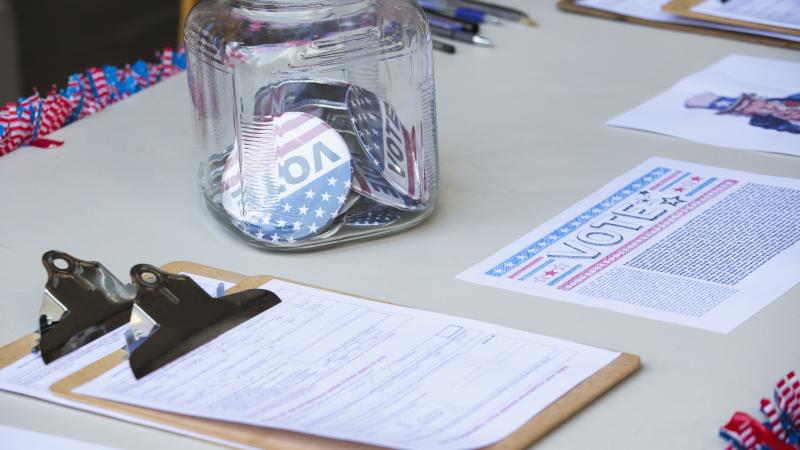Elon Musk’s X sues California over alleged First Amendment violations
When Republican states passed legislation to prevent some kinds of online censorship on social media, California Democrats responded by passing AB 587, which creates significant reporting requirements for social media companies that create actionable moderation categories that include hate speech, racism, extremism, radicalization, disinformation, misinformation, harassment and foreign political interference.
Is it possible to create a universally applicable definition for “hate speech” without infringing on the First Amendment? According to a lawsuit filed by Elon Musk’s X Corp., a new California law Musk says violates free speech by forcing social media companies to define, create enforcement mechanisms, and compile statistics on a wide range of offenses including “hate speech,” “extremism,” “radicalization,” and “misinformation,” would leave X with no choice but to “eliminate” legal speech the State of California finds “problematic.”
In its lawsuit to block the law, X cites Jonathan Greenblatt, chief executive officer of the Anti-Defamation League — a sponsor of the bill and a leading antagonist for Musk, who said the intent of the law and its reporting requirements is to “improv[e]” the “enforcement of [social media companies’ content-moderation] policies” or “provide enough evidence for legal action against them.”
AB 587, the California bill signed into law by Governor Gavin Newsom in September 2022, was marketed as a transparency-oriented measure to have social companies make their content moderation policies and statistics available in public reports filed with the California Attorney General starting in January of 2024. At the time, social media censorship was at the forefront of the national discussion, with Musk having started his purchase of X, then Twitter, in April 2022 in response to escalating online censorship during and after the COVID-19 pandemic.
When Republican states passed legislation to prevent some kinds of online censorship on social media, California Democrats responded by passing AB 587, which creates significant reporting requirements for social media companies that create actionable moderation categories that include hate speech, racism, extremism, radicalization, disinformation, misinformation, harassment and foreign political interference.
For content in these categories, social media companies will have to explain how their policies address this content, how companies use automatic and human review systems for content, and how they remove content, users or groups that violate the terms of service. Lastly, companies would have to disclose the amount of flagged and actioned content, and the number of times actioned content was viewed and shared. Companies failing to reach any of these requirements could see fines of up to $15,000 per day, in addition to further civil penalties should the California attorney general file suit.
X’s lawsuit contends the point of AB 587 is to “pressure social media companies to eliminate or minimize content that the government has deemed objectionable.” In its lawsuit, X cites a letter California Attorney General Rob Bontas sent to X Corp. and other leading social media companies two months after AB 587’s passage about their “responsibility” to combat “dissemination of disinformation that interferes with our electoral system” and that his Department of Justice would “not hesitate” to enforce AB 587.
In its suit, X also claims, “Because the Terms of Service Report forces disclosures about content moderation to cover the controversial topics that the State has defined, social media companies like X Corp. will feel pressure to indicate that they take steps to regulate such content, rather than be subject to a pronouncement that, for example, they do not regulate “hate speech” or “racism” at all.”
AB 587’s lead author, Assemblymember Jesse Gabriel (D-Encino) wrote the bill is an “important first step” in ensuring “social media companies moderate or remove hateful or incendiary content on their platforms,” and that he hopes the bill will “pressure them” to “eliminate hate speech and disinformation.”
The California Department of Justice told Reuters it will respond to the lawsuit in court.
X filed a lawsuit in August against the Center for Countering Digital Hate, which claims hate speech has increased under Musk’s tenure. X’s suit against the organization claims the center made “inflammatory, outrageous, and false or misleading assertions about Twitter” and suggested it conspired “to drive advertisers off Twitter by smearing the company and its owner.”
Musk has also insinuated X may file a suit against the ADL as well, and would “have no choice but to file a defamation suit” if the ADL continues to put “pressure on advertisers” by “falsely accusing” Musk and X of “being anti-Semitic.” Soon after this episode, #BanTheADL began trending on X, and Musk interacted with some of the posts.
“It is profoundly disturbing that Elon Musk spent the weekend engaging with a highly toxic, antiSemitic campaign on his platform — a campaign started by an unrepentant bigot that then was heavily promoted by individuals such as white supremacist Nick Fuentes, Christian nationalist Andrew Torba, conspiracy theorist Alex Jones and others,” Greenblatt said.














